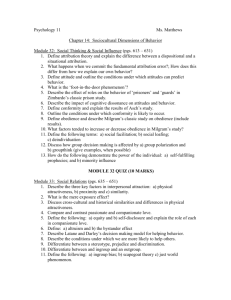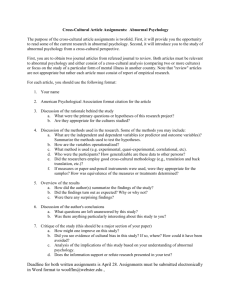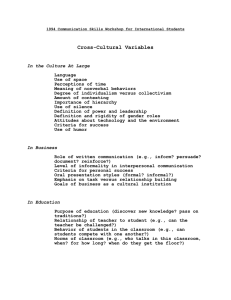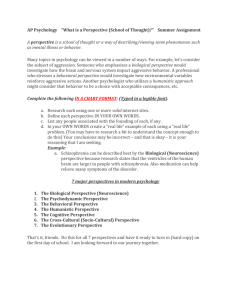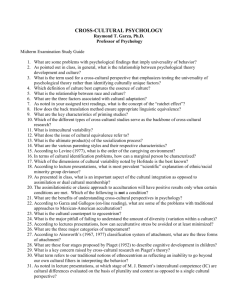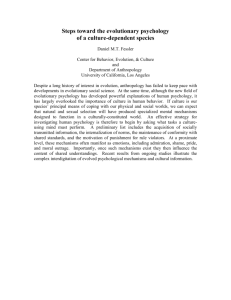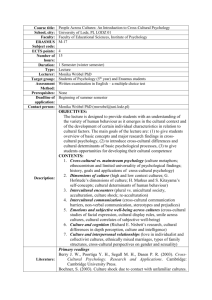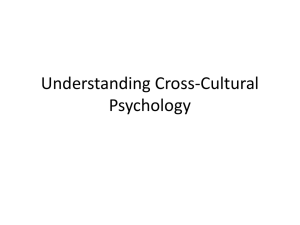Chapter 1 Summary
advertisement
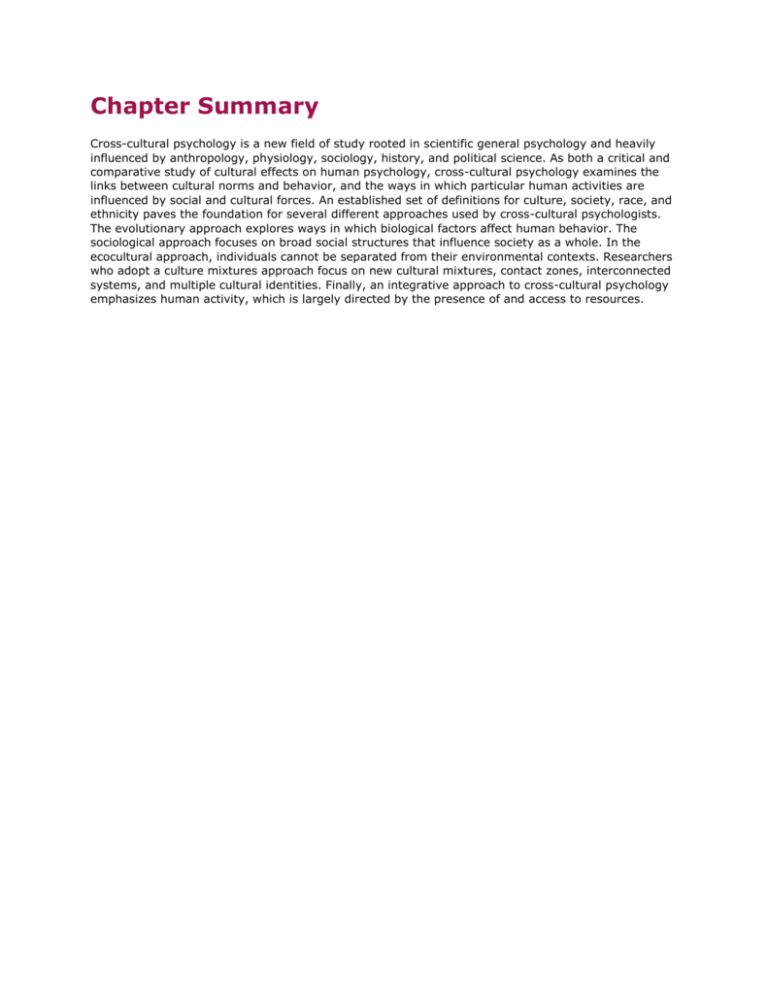
Chapter Summary Cross-cultural psychology is a new field of study rooted in scientific general psychology and heavily influenced by anthropology, physiology, sociology, history, and political science. As both a critical and comparative study of cultural effects on human psychology, cross-cultural psychology examines the links between cultural norms and behavior, and the ways in which particular human activities are influenced by social and cultural forces. An established set of definitions for culture, society, race, and ethnicity paves the foundation for several different approaches used by cross-cultural psychologists. The evolutionary approach explores ways in which biological factors affect human behavior. The sociological approach focuses on broad social structures that influence society as a whole. In the ecocultural approach, individuals cannot be separated from their environmental contexts. Researchers who adopt a culture mixtures approach focus on new cultural mixtures, contact zones, interconnected systems, and multiple cultural identities. Finally, an integrative approach to cross-cultural psychology emphasizes human activity, which is largely directed by the presence of and access to resources.
